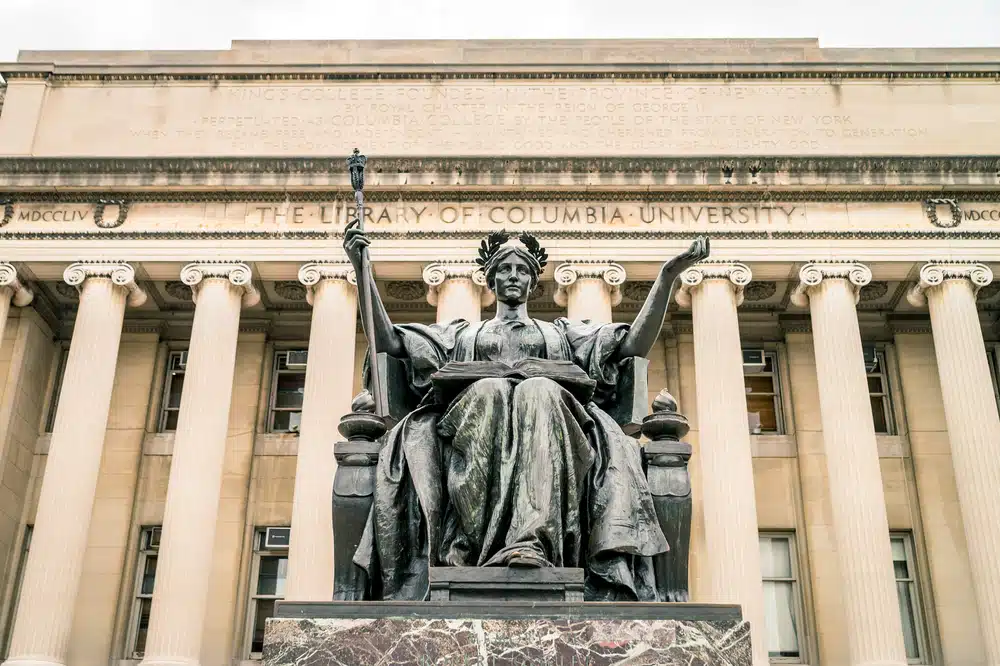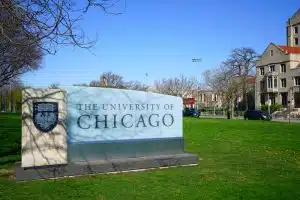Acing Your Columbia Interview: Tips and Strategies
The prospect of appearing for an interview at an esteemed institution like Columbia University can be both an exhilarating and nervous experience. Chances are, you may have already spent copious amounts of time preparing your application, and now comes the part where you would need to present yourself and your achievements in person.
If you’ve ever wondered how exactly to tackle this stage of your Columbia University application process, you’ve come to the right place.
Understanding the Columbia Interview Process
The Columbia interview process plays a crucial role in the university’s admission process, offering a unique opportunity for both the applicant and the admissions team to assess the fit between the student and the university. While academic achievements provide insights into a student’s capabilities, the interview allows the admissions team to get to know applicants on a more personal level.
It’s an opportunity to substantiate academic achievements and highlight personal qualities, which are equally important for the admissions process.
During the Columbia interview, applicants can expect to meet with a knowledgeable alumnus of the school, someone who has first-hand experience of the university’s culture and values. Their insights and perspectives can provide valuable guidance and information during the conversation. The interview typically takes on a casual, relaxed tone, creating a comfortable environment for applicants to express themselves and share their experiences.
The topics covered during the Columbia interview can vary widely. The interviewer may inquire about academic interests, asking applicants to elaborate on specific subjects or courses that have piqued their curiosity. They may also be interested in learning about extracurricular activities and how applicants have demonstrated leadership or pursued their passions outside of the classroom.
Furthermore, the Columbia interview offers an opportunity for applicants to ask questions and gain a deeper understanding of the university. They can inquire about specific programs, research opportunities, or even the campus culture. This not only demonstrates genuine interest in the school but also allows applicants to gather valuable information to help make an informed decision if accepted.
It’s important to approach the Columbia interview with confidence and authenticity. Applicants should be prepared to discuss their academic achievements and personal experiences thoughtfully and articulately. Remember to highlight unique qualities and how they align with Columbia’s values and mission.
The interview is conducted by alumni representative committee volunteers who have personally experienced the college, so their insights can be especially valuable. It is typically more informative than evaluative, and students who do not interview will not be at a disadvantage because interviews are not a requirement for the application process.
In the case of online interviews, candidates can choose between Webex, Zoom, and Skype, and phone interviews are an option if reliable Wi-Fi access for a video call is a concern. The interview process is not standardized across all campuses, but undergraduate interviews at Columbia University are always conducted by alumni representative committee volunteers.
Overall, the Columbia interview is an integral part of the admission process, providing both the applicant and the admissions team with an opportunity to assess the fit between the student and the university.
It allows applicants to showcase their personality, passion, and potential contributions to the Columbia community. Embrace the interview as a chance to shine and leave a lasting impression on the admissions team.
Preparing for Your Columbia Interview
Researching About Columbia University
Before stepping into your interview, it’s advised that you spare time for extensive research on Columbia University. Understand the institution’s values, its unique programs, its culture, and how it stands out from other prestigious universities.
Columbia University, located in the heart of New York City, is renowned for its academic excellence and diverse student body. Its commitment to interdisciplinary learning and global engagement sets it apart from other institutions.
When researching Columbia, delve into its rich history and notable alumni. Explore the various schools and departments within the university, such as the Columbia Business School, Columbia Law School, and the Fu Foundation School of Engineering and Applied Science.
Familiarize yourself with the university’s core curriculum, which promotes intellectual exploration and critical thinking across a wide range of disciplines.
Furthermore, take the time to learn about the university’s extracurricular activities, clubs, and organizations. Columbia offers a vibrant campus life, with opportunities for involvement in student government, community service, performing arts, and sports. Understanding the university’s culture and community will demonstrate your genuine interest and compatibility with Columbia’s values.
Reflecting on Your Personal and Academic Achievements
Considering the Columbia interview is a means to know you beyond your application, it’s crucial that you reflect on your journey so far, your successes, your failures, and what they have taught you. Be prepared to discuss your academic achievements but also personal experiences that have shaped you as an individual.
Think about the challenges you have overcome, the projects you have undertaken, and the impact you have made in your community. Reflect on how these experiences have shaped your character, values, and aspirations. Consider the skills and qualities you have developed, such as leadership, teamwork, and resilience.
When discussing your academic achievements, highlight any research projects, internships, or academic honors you have received. Discuss how these experiences have deepened your passion for your chosen field of study and how they align with Columbia’s academic offerings. Additionally, reflect on any extracurricular activities or community involvement that have broadened your perspective and contributed to your personal growth.
Anticipating Potential Interview Questions
While each interview is unique, there are some common questions that you could prepare for. Questions about your interest in your chosen field of study, your knowledge of Columbia University, your extracurricular activities, and your future plans are some of the many topics that can come up.
When preparing for potential interview questions, take the time to brainstorm and practice your responses. Consider how your experiences and interests align with Columbia’s academic programs and values. Reflect on why you are specifically drawn to Columbia and how it will help you achieve your academic and career goals.
Remember that authenticity is key during the Columbia interview. While it’s important to be prepared, strive to present true representations of your thoughts and experiences. Be confident in sharing your unique story and aspirations, as this will allow the interviewers to gain a deeper understanding of who you are as a person and a potential member of the Columbia community.
Mastering the Art of Communication
Communication is a fundamental skill that plays a crucial role in various aspects of our lives. Whether it’s expressing our thoughts and ideas, building relationships, or succeeding in professional settings, effective communication is key. In particular, when it comes to interviews, being able to communicate effectively can make all the difference in leaving a lasting impression.
The Role of Body Language in Interviews
While your words represent your thoughts, your body language can reflect your confidence and enthusiasm. It is often said that actions speak louder than words, and this holds true in the context of interviews. Maintaining an upright posture not only portrays confidence but also shows that you are attentive and engaged in the conversation.
Additionally, establishing eye contact with the interviewer conveys trustworthiness and sincerity, making you appear more credible.
Another important aspect of body language is mirroring the interviewer’s positive body language. Mirroring refers to subtly imitating the other person’s gestures, expressions, and even tone of voice. This technique can establish a sense of rapport and connection, making the interviewer feel more comfortable and inclined to view you in a positive light.
Furthermore, being aware of your own body language can help you project a positive image. Avoid crossing your arms, as it can create a barrier and make you appear defensive or closed off. Instead, keep your arms relaxed and open, signaling approachability and receptiveness.
Showcasing Your Unique Qualities
When it comes to applying to Columbia University, it’s important to remember that you are competing with high-achievers from all over the world. With such fierce competition, what sets you apart could be your unique experiences and passions. It’s crucial to be ready to highlight instances where you have demonstrated your strongest skills and talk about the things you feel most passionate about.
Imagine sitting in the admissions office at Columbia University, surrounded by stacks of applications from brilliant students. As the admissions officers sift through the piles, they are looking for that spark of individuality that makes an applicant stand out. They want to see how you have used your skills and passions to make a difference in your community or pursue personal projects that have shaped your character.
Perhaps you have a talent for public speaking and have organized events that brought people together to discuss important issues. Or maybe you have a passion for environmental sustainability and have initiated projects to reduce waste and promote eco-friendly practices in your school or neighborhood. These are the kinds of experiences that can truly make your application shine.
Highlighting Your Strengths and Passions
When it comes to highlighting your strengths, it’s not just about listing your achievements and accolades. It’s about telling a story that showcases your unique qualities. Admissions officers at Columbia University want to see how you have overcome challenges, how you have grown as a person, and how you have made a positive impact on the world around you.
Imagine sitting in an interview room with an admissions officer, eagerly waiting to share your story. As you talk about your experiences, you can feel the passion in your voice and the excitement in your eyes. You discuss the countless hours you have dedicated to your craft, the sacrifices you have made, and the lessons you have learned along the way.
It’s not just about what you have achieved but also about the journey that has led you to this point. The admissions officers want to understand your motivations, your values, and your unique perspective. They want to see how your strengths and passions align with the values and opportunities that Columbia University has to offer.
Discussing Your Future Goals and Aspirations
While highlighting your past achievements and experiences is important, it’s equally crucial to discuss your future goals and aspirations. Your future plans reveal a lot about your ambition, vision, and practicality. Admissions officers at Columbia University want to see how attending their institution would be a milestone in achieving those goals.
Imagine sitting across from an admissions officer, painting a vivid picture of your future. You confidently articulate your career goals and explain how Columbia University’s renowned programs and resources will help you reach new heights. You discuss the specific courses, professors, and research opportunities that align perfectly with your aspirations.
But it’s not just about your personal goals. It’s about how your goals align with the mission and values of Columbia University. You talk about how you envision using your education to make a positive impact on society, to contribute to your field of study, and to create a better future for generations to come.
By discussing your future goals and aspirations, you demonstrate to the admissions officers that you have a clear vision for your future and that you have carefully considered how Columbia University can help you achieve that vision.
Handling Difficult Interview Questions
Strategies for Answering Tricky Questions
Some questions may take you by surprise, and that’s okay. Remaining calm, taking a moment to gather your thoughts, and addressing the question honestly can help you navigate through difficult questions effectively.
Staying Calm and Composed Under Pressure
Lastly, remember interviews can indeed be stressful, but staying calm under pressure would only enhance your performance. Getting overly anxious can hamper your ability to think clearly and perform efficiently. So, take deep breaths, believe in your preparation, and put your best foot forward.
Remember, your Columbia interview is not just about assessing your fitness for the university but also about providing you an avenue to understand the university better. So make the most of it.
Having all the necessary information is important before choosing any course of action. AdmissionSight is always here to assist you with any questions or concerns. We have more than ten years of expertise assisting students in successfully navigating the challenging admissions process.
Consult with AdmissionSight and find out what we can do to help you get into the school of your choice by ensuring that you are sufficiently aware and well-prepared for the application process.









































